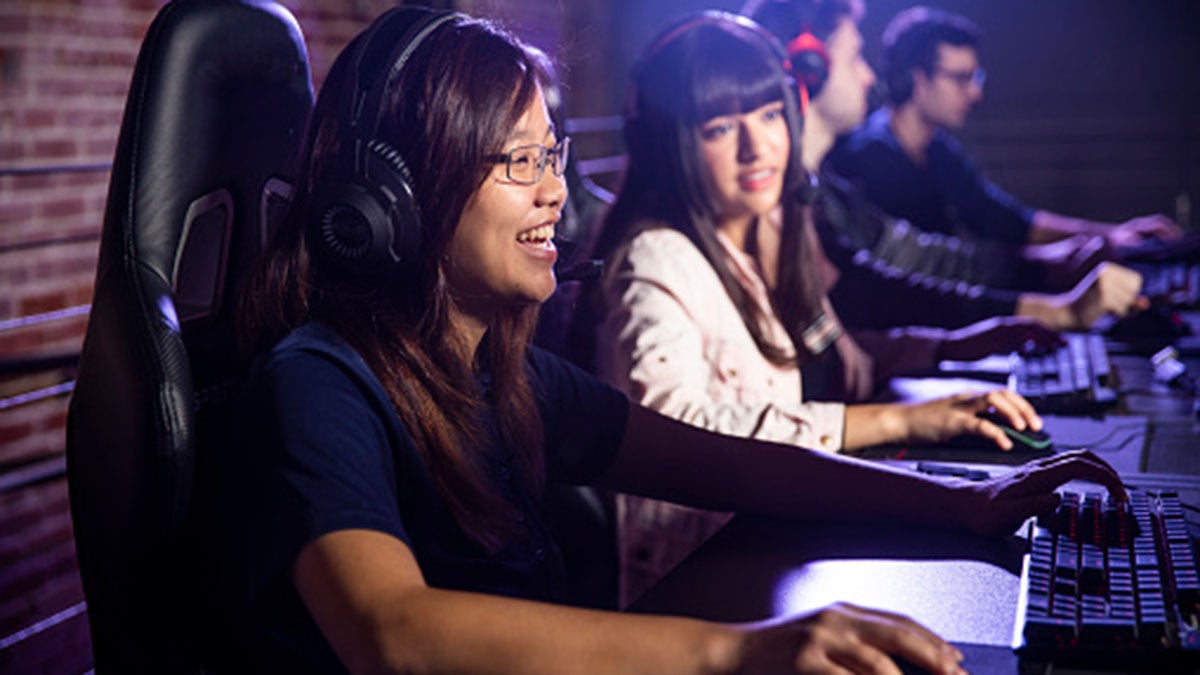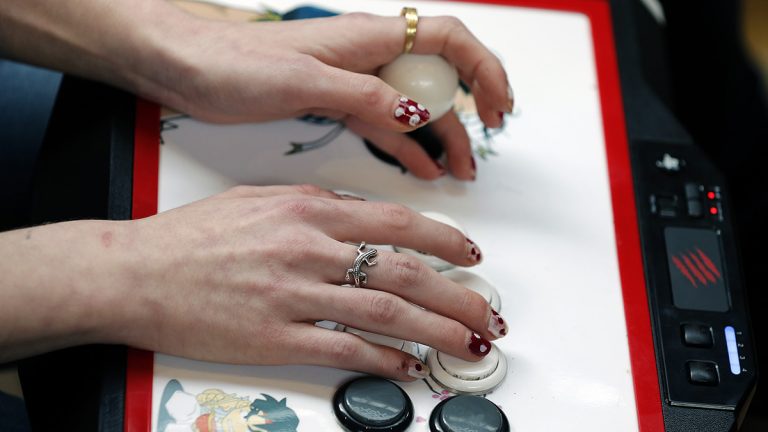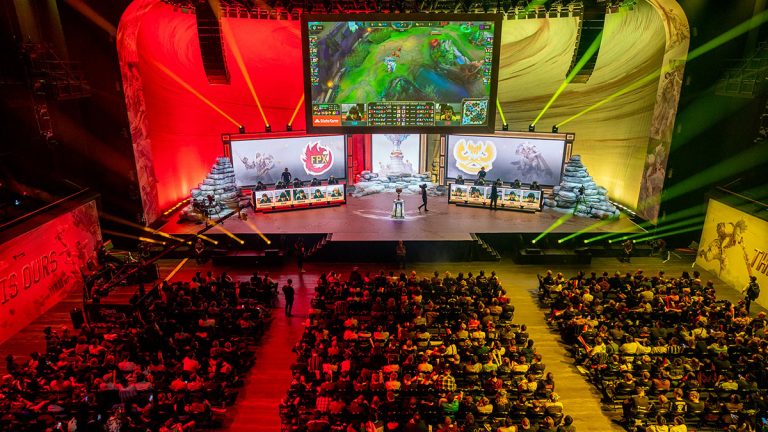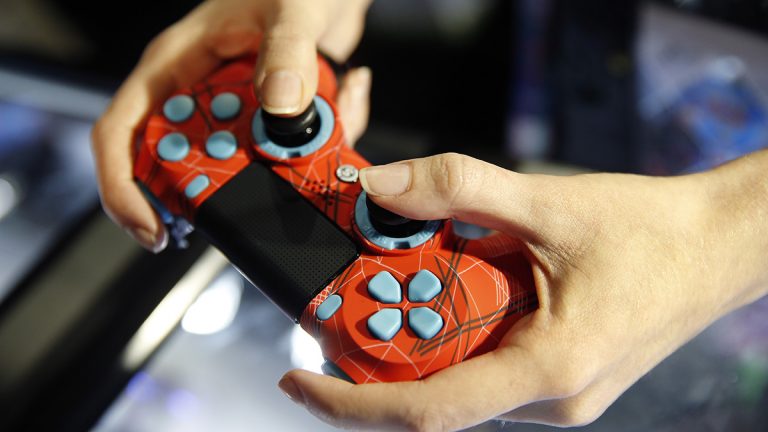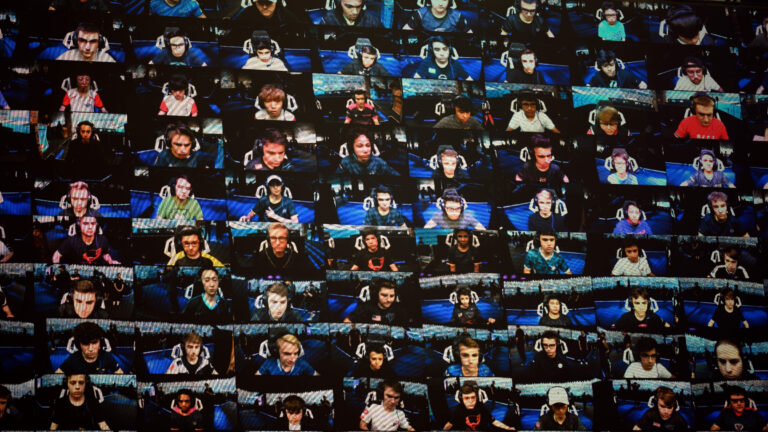Diversity, inclusion remain a problem in esports industry
Why this matters
Esports is still a young and growing industry, which means there is still an opportunity to address its diversity problem before those in charge become set in their ways.
Esports has made strides recently in the realm of education and business, but one area where the industry falls short is diversity and inclusion.
At the University of California, Irvine’s Esports Conference 2019, Bo Ruberg, an assistant professor of digital games and interactive media in the school’s Department of Informatics, delved into the subject during a keynote speech. Ruberg stressed how important it is to make changes as the industry is still growing, before those involved are settled into their ways.
“The longer something's been around, the harder it is to change the system,” Ruberg said. “So I think because we're in a moment of shift, we can bring in those values, which are: everyone deserves to have a chance to be here. Everyone deserves to feel welcome, and we can bring them to esports.”
Diversity in this case includes race, ethnicity, gender, sexuality, disability and class, as well as the associated issues of privilege. Ruberg established early that the term diversity isn’t perfect, but that it gets the job done.
However, the keynote address also explained how diversity and inclusion are inherent parts of any esports conversation. After all, esports communities are made up of people, and diversity is a key factor in education and business decisions. Ruberg admits the way businesses prioritize profits can make conversations tricky, but that the relationship doesn’t have to be adversarial.
“I think it's worth thinking about who you loop in when you want to make more people feel safe and welcome,” Ruberg said. “Business isn't the opposite of diversity, right? It can be part of the equation if you bring it into consideration.”
While Ruberg doesn’t have a solution to that equation, there are improvements to be made. Gaming culture as it is today shapes esports, with disruptive behaviors and toxic masculinity creating different levels of access to video games.
Great talk from @MyOwnVelouria on diversity and inclusion. The callback to early Esports scholarship by women and minorities was important to remember and recognize for my own scholarship. #CiteHerWork #UCIESC2019 pic.twitter.com/g8iVYVGQ0Y
— Alexandra Cata at ??SIGDOC and ?ESC (@virasera) October 10, 2019
These cultural issues are why Ruberg said the esports industry needs to address gender discrimination. Ruberg, who uses plural pronouns, added, during their keynote, this doesn’t just mean cisgendered women. According to Ruberg, there are non-binary and transgender people who deserve to be included in esports as well.
All of these groups face barriers to entry, but Ruberg said they also face harassment once they have broken through. Many are also in what Ruberg described as an impossible situation in regards to feminism, where they face criticism regardless of their stance.
Race is also important, and Ruberg said there are even less conversations about the lack of black and Latinx people in esports than there are about women. However, they pointed to Dominique “SonicFox” McLean’s acceptance speech after winning esports player of the year in 2018. Their openness about race and sexuality creates the kind of positive effects the industry needs.
However, Ruberg said diversity and inclusion in esports is about more than just players. There are tournament organizers, streamers and advising roles that need to address the same issues.
“Just remember that diversity inclusion is related to all of those things, and that we want diverse people in the roles, but also that we want to support people in those roles,” Ruberg said. “It's not as simple as making sure we have diverse people on teams. If we're really committed to that, we have to think about how identity and privilege and all those things affect ... all the bigger pieces of esports.”
Despite knowing about these problems, Ruberg said it can be difficult for conversations about diversity and inclusion to penetrate academic circles and reach gaming communities. However, they pointed to many researchers they know who are building programs at the college level and giving talks to people in the esports industry.
Ruberg used an event held at the UCI Esports Arena as an example of one way to address issues of diversity and inclusion. At this event, only transgender people were allowed into the arena so they could play in a safe space for a few hours. Some people think these events are divisive, according to Ruberg, but they disagree.
“I hear that argument, that shouldn't the point be to come together and to be integrated?” Ruberg said. “But often for people who are visibly different, like trans folks or people of color, there's a certain amount of tension that you carry with you at all times, because you're used to experiencing these micro aggressions or this discrimination.”
It’s also crucial to understand the goals of events like these, according to Ruberg. While building a coed team or helping better integrate marginalized gamers can be one outcome, Ruberg explained there are other options.
“I do work with queer gaming communities, and our goal isn't always to be like, let's elevate queer people so that they can enter the mainstream, right?” Ruberg said. “Holding space for our own community can be really important to do.”
At the same time, academics studying esports face their own biases, according to Ruberg. They said while they’re unaware of everything published about esports, much modern research focuses on education or business. This stands in contrast to subjects Ruberg said earlier researchers examined, like community and diversity. They encouraged researchers to look back and integrate old research into their new pursuits.
“It's worth doing that older reading,” Ruberg said. “It's worth valuing those things so culture and diversity and identity can keep being part of the conversation.”
Finally, Ruberg showed how all of these issues manifest on video game streaming sites like Twitch and discussion sites like Reddit. In these spaces, sexist conversations are rampant. Occasionally women are accused of not being actual gamers and using their bodies to make money streaming. Harmful discussions like these are only reinforced by vague dress code rules that are typically only enforced against women.
Fortunately, sites like Twitch are also a haven for LGBTQ communities, according to Ruberg. They said streamers often use these spaces to build communities online where they can find support.
Ruberg’s keynote wasn’t the only discussion at UCI ESC 2019 about diversity and inclusion, though. Alexandra Cata, a doctorate student in the communication rhetoric and digital media program at North Carolina State University, also led a panel about leveraging platforms for marginalized voices in esports.
Cata’s research examined the language used by three different esports groups: Black Girl Gamers, Women of Esports and the Hearthstone podcast Coin Concede. She found that the terms these groups used generated knowledge sharing, which builds trust in these communities.
Dr. Bo Ruberg (they/them) is our keynote! They are presenting on Diversity and eSports. @MyOwnVelouria says they come from a "fruit salad" diverse multifaceted background pic.twitter.com/HuvzZng0K4
— Dr. Brenna R. Byrd (@brennabyrd) October 10, 2019
According to Cata, the language used by groups like those she studied are examples of inclusionary language. This stands in contrast to exclusionary language she and other gamers experience on a regular basis. She used the common phrase, “GG boys,” as an example of this. “GG” stands for good game, and using “boys” excludes every other gender that might be playing a game.
“I can't tell you how many times I heard that finishing an Overwatch match myself after I have been actively speaking and engaged in shot calling,” Cata said. “And I'm like, I'm a girl, I'm not a boy.”
Cata said this language has become ingrained in culture, and that it’s not used maliciously. Gaming can get tense, too, and she said players can resort to extremely and unintentionally insulting or derogatory language as a result. Essentially, this problem exists on a spectrum, where some is intentional and some unintentional.
Regardless of intention, Cata said this language can turn people away from playing these games. Major figures can also contribute to this problem, like when Fortnite streamer Tyler “Ninja” Blevins said he doesn’t stream with women to avoid starting rumors that could affect his marriage.
“That provides sort of this justification to not care. If Ninja doesn't care, why should anybody else care, right?” Cata said. “And that's why it matters.”
To fix these problems, Cata said it will require a community effort of taking a stand against exclusionary language in a way that creates awareness.
“Sometimes it’s calling somebody out and saying, ‘hey, you shouldn't say that. That's not appropriate,’” Cata said.
Last year, former NFL kicker Chris Kluwe did just that in an opinion piece published on Global Sport Matters. In it, he railed against shortcomings in diversity among the organizations like the “League of Legends” Championship Series and the Overwatch League. He also encouraged league owners like Riot Games and Blizzard Entertainment to institute systems that mandate the consideration of more diverse people on esports teams. According to him, this would be similar to the NFL’s Rooney Rule, which requires teams to interview African American candidates for job openings to provide fair opportunities for minority candidates.
Jason Krell is a masters of sports journalism student at Arizona State University.

